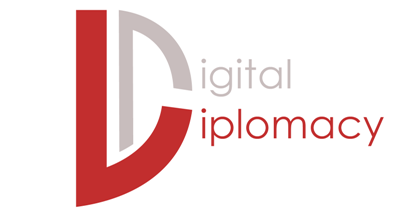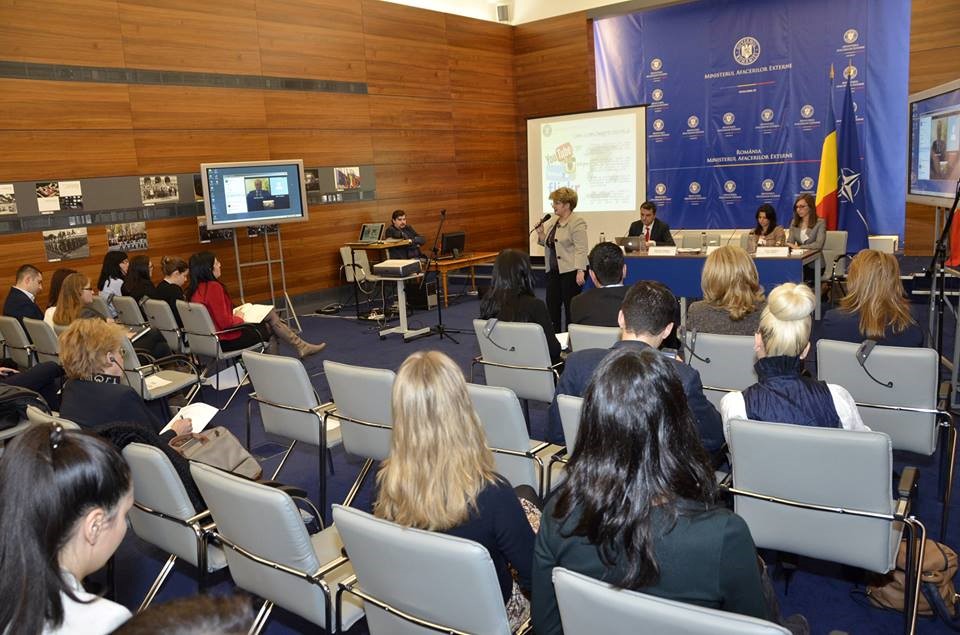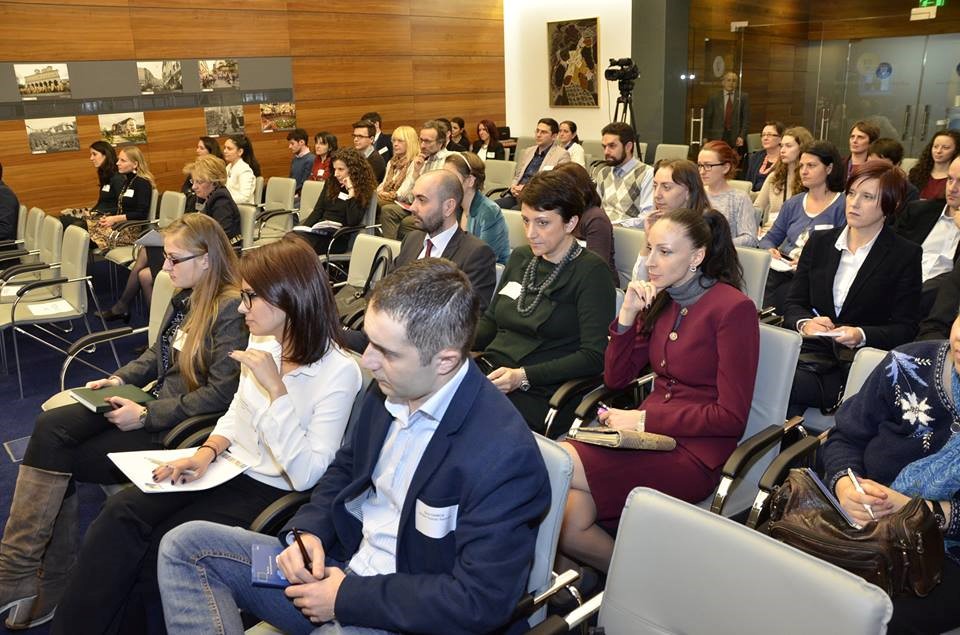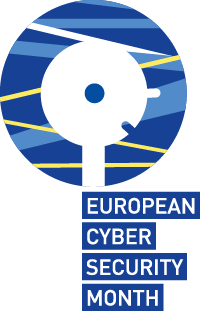The Institute for Digital Government (IDG http://idg.digitaldiplomacy.ro/) is a non-governmental organization with the primary purpose to contribute to the modernization of public institutions in Romania, by supporting the development of digital communication capabilities. IDG has developed or joined national and international projects to raise awareness on the importance of efficient integration of digital technologies by public administration, to determine an increase in the transparency of government entities and in citizens’ engagement in the democratic processes through new media tool, as well as to actively support the improvement of digital communication skills of leaders and strategic employees across all sectors.

In the context of the rapid evolution of information and communication technology (ICT), the growing opportunities for public institutions and citizens to interact online, and the increasing demands of public opinion for greater accountability of public administration, the Institute plays a central role in promoting the use of online tools by public institutions in Romania.
Partnership and coalition-building
The Institute for Digital Government has been a partner in projects on developing communication strategies, enhancing the digital literacy of communication professionals in central institutions, reviewing the digital footprint of the Romanian public administration, and many more, with key institutions, among which the Office of the Prime Minister of Romania, The Ministry of Foreign Affairs of Romania, The Ministry of Regional Development, and The Executive Agency for Higher Education, Research, Development and Innovation Funding (UEFISCDI) within the Romanian Government.
IDG also collaborates with multiple organizations from the NGO and private sectors on innovative and niche topics, bringing the latest and most relevant technology news and case studies to diverse audiences, including:
- open data and data visualization;
- digital communication strategies;
- e-government and e-governance;
- e-citizenship and citizen journalism;
- digital diplomacy;
- EU Digital Agenda priorities, opportunities and challenges;
The Institute has a trans-national reach as well. It has established partnerships with similar organizations and experts from neighbouring countries of Romania, such as the Republic of Moldova and Serbia. These partnerships offer opportunities for joint initiatives on sharing know-how and strengthening democracy and citizen engagement through the use of new technologies, and thus contributing to the overall development of the region.
Projects
The Institute for Digital Government has a wide range of programmes, encompassed in three main areas of activity:
I. Awareness raising:
1.1. The DigitalDilomacy.ro platform – the first digital communication platform in Romania offering relevant information and know-how on online tools for public institutions in the format of a blog.
1.2. DigiGov Club – the first networking club in Romania for communication specialists working in public institutions, both at national and local levels, including from diplomatic missions.
1.3. Lectures – giving lectures and presentations on public diplomacy, digital diplomacy and digital communications for institutions to graduate and post-graduate students in the field of communication, journalism and international relations.
II. Project development:
2.1. Social Media Guide for Public Administration in Romania – developed in partnership with the Office of the Prime Minister of Romania, it aims to improve the transparency of government communication and engagement with the general public.
2.2. EU and national funded projects – applying for externally funded projects for the benefit of communication specialists in public institutions in Romania and beyond.
2.3. Supporting projects – partnering in projects, events and initiatives developed by public institutions, NGOs, and companies, to offer visibility and expertise, such as in the 2014 and 2015 Burson-Marsteller Twiplomacy studies.
III. Consultancy services:
3.1. Consultancy & implementation: creating and implementing digital communication strategies and campaigns.
3.2. Monitoring & evaluation: accomplishing complex analyses of an institution’s digital footprint.
3.3. Training: delivering tailored training and professional development courses.
1.1. DigitalDiplomacy.ro
The only digital communication platform for the public sector in Romania - DigitalDiplomacy.ro - was launched in 2013. The platform is based on the concept and practice of digital diplomacy as the most visible example of the two-way communication model for sharing information, engaging with stakeholders and the general public, as well as influencing public opinion and the overall image of an institution.

DigitalDiplomacy.ro is addressed to communication professionals, opinion makers and leaders from the diplomatic and public sector in Romania. The bilingual website (Romanian and English) aims to provide interesting, useful and up-to-date information, advice and guidance on techniques, opportunities and challenges of online communication for the public administration, as well as insights from around the world on how digital technologies can improve and sustain a partnership between citizens and public institutions. Hence, it offers in-depth analyses, interviews, best practice examples, international reports and announcements about relevant events on digital diplomacy and online communication. The platform is managed by its two founders, but it features also guest blogs and comments from its partners and readers.
1.2. DigiGov Club
DigiGov, the only network dedicated to communicators in public institutions in Romania, was launched in 2014, in order to facilitate interaction between institutions, communication departments and people, as well as an exchange of experience regarding online communication. DigiGov includes members from both central and local institutions, as well representations in Romania of international institutions and diplomatic missions.
The DigiGov meetings are held on a monthly basis, each being organized in partnership with an institution that provides the venue for the event. Moreover, all meetings are dedicated to a specific topic and feature high-level guest speakers either from Romania or abroad, the latter joining the sessions online. Thus, DigiGov members have the opportunity to interact with top professionals and discover useful, interesting and up-to-date information, as well as to build connections and close relations with fellow colleagues.
Among the active supporters of the DigiGov network are the Department of Online Services and Design at the Cabinet of the Prime Minister of Romania, the Ministry of Foreign Affairs of Romania, the Ministry of Defence, the Ministry of Information Society and the British Embassy in Romania.
The DigiGov meetings were the first events in Romania to approach the subject of digital diplomacy and one of the main venues to discuss the implications of the National Strategy for the Digital Agenda – 2020 adopted by the Romanian Government in 2015. Moreover, the meetings have already provided for genuine connections to be formed among the current 50+ members and for valuable opportunities for development of joint projects between their respective institutions to be drafted.


Images from DigiGov Club, 27 January 2015, organized together with the Ministry of Foreign Affairs
2.1. Social Media Guide for Public Administration in Romania
The Institute was invited by the Romanian Government, through the Department of Online Services and Design at the Cabinet of the Prime Minister, to create the first Social Media Guide for Public Administration in Romania, which was published and made available online, for free, in December 2014.
The Guide offers a strategic approach to the use of social networks by public institutions in Romania, with detailed explanations and best practice examples for the most popular and most useful networks according to the profile of the national internet user, in order to determine a more effective dissemination of institutional messages and institution-citizen engagement. In addition, the document presents a general overview of the internet penetration in Romania and the impact of mobile devices on the web presence of public administration.
The Guide has been accessed more than 300 times and is currently being used as a handbook for social media by central and local institutions in Romania. Moreover, the document was sent by the Ministry of Foreign Affairs of Romania to all its diplomatic missions abroad.
Plans and opportunities
The Institute for Digital Government aims to become the top organisation offering digital communication expertise and support to public institutions in Romania and in, in time, from the Central and Eastern Europe region. Moreover, IDG will strive to increase its educational, outreach and knowledge-sharing programmes in order to determine a higher degree of professionalization of digital communication practices in the public sector.
In this context, IDG is open and interested in building strong and lasting partnerships with organisations across Europe.


